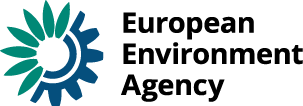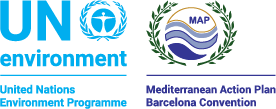ENI SEIS II SOUTH Project
On 1 February 2016, the European Environment Agency (EEA) kicked off the second phase of the EU-funded European Neighbourhood Instrument (ENI) Shared Environmental Information System (SEIS) - ENI SEIS II South Support Mechanism together with Algeria, Egypt, Israel, Jordan, Lebanon, Libya, Morocco, Palestine and Tunisia. This 4-year undertaking financed by the European Commission’s Directorate-General for Neighbourhood and Enlargement Negotiations (DG NEAR) under the European Neighbourhood Instrument is being jointly implemented with the UN environment Mediterranean Action Plan (UNEP/MAP).
Objectives
The overarching objective is to ensure coherence and harmonisation of environmental reporting at the regional level in support of more efficient policymaking (i.e. in terms of contributing to reducing marine pollution). The specific objective is to improve the availability of and access to relevant environmental information for the benefit of effective and knowledge-based policymaking in the European Neighbourhood Policy (ENP) Southern region.
The project’ s activities will contribute to the implementation of the Horizon 2020 (H2020) initiative to reduce the pollution of the Mediterranean Sea by 2020, in conjunction with other EU-funded projects and initiatives.
Expected Results
Based on a balanced partnership between the EEA and UNEP/MAP, while ensuring coordination with the work programmes of the two institutions during the project’s implementation and with the agreed work programme of H2020 for the period 2015-2020, the expected results at the end of the ENI SEIS II South Support Mechanism are:
- R1: The H2020 indicator set is stabilised, refined and coordinated with other indicators processes in order to serve multiple purposes and to ensure that progress towards achieving the H2020 objectives is properly measured, while also contributing to assessing compliance with commitments under the Barcelona Convention.
- R2: The in-country processes for organising the sharing of the data sets underlying the H2020 indicators are stabilised.
- R3: The infrastructure for reporting offered by the EEA (‘Reportnet’) and UNEP (UNEP/MAP Reporting Network) is more widely used.
- R4: Indicator-based H2020 report(s) and assessments are produced in line with good practice adopted by the EU. This will be complemented by similar reports developed for the EU and the Western Balkan countries under the upcoming Marine Strategy Framework Directive (MSFD) reporting cycle (2018) to provide a comprehensive picture of the whole Mediterranean region and align the various reporting processes.
Key areas of work are:
1. In-country support. Enhance national capacities by addressing particular national needs and contributing to regional needs; commitment will be reflected in the agreed national SEIS work plan, which will be revised during the project’s implementation.
2. Indicators and assessments. Ensure regular production of indicators, agreed at regional level under the ENI SEIS II South Support Mechanism, and indicator-based assessments that are relevant to informing and monitoring the progress of the H2020 initiative and will contribute to achieving the objectives of the other work packages.
3. Data and statistics. Ensure timely production and sharing of harmonised, quality assured statistics and data related to the H2020 thematic priorities.
4. Infrastructure and data management (common information system). Establish and maintain national and regional environmental information systems and data sharing in line with the gradual establishment of the SEIS.
5. Visibility and communication. Ensure high visibility of the measures implemented and active communication with the key project partners and other stakeholders.
6. Management and coordination. Ensure effective and smooth implementation of the project’s activities, including project management and administration, as well as regular coordination with relevant partners and initiatives.
Project Timeline
The ENI SEIS II South Support Mechanism runs from 2016 until 2020 with the following key milestones:
NAP: National Action Plan; IMAP: Integrated Monitoring and Assessment Programme; MSSD: Mediterranean Strategy for Sustainable Development; SoED: State of the environment and development; NFPs: National focal points


